Libelium’s IoT Technology Monitors Parking for Disabled Citizens in Huesca
Parking Has Never Been Smarter
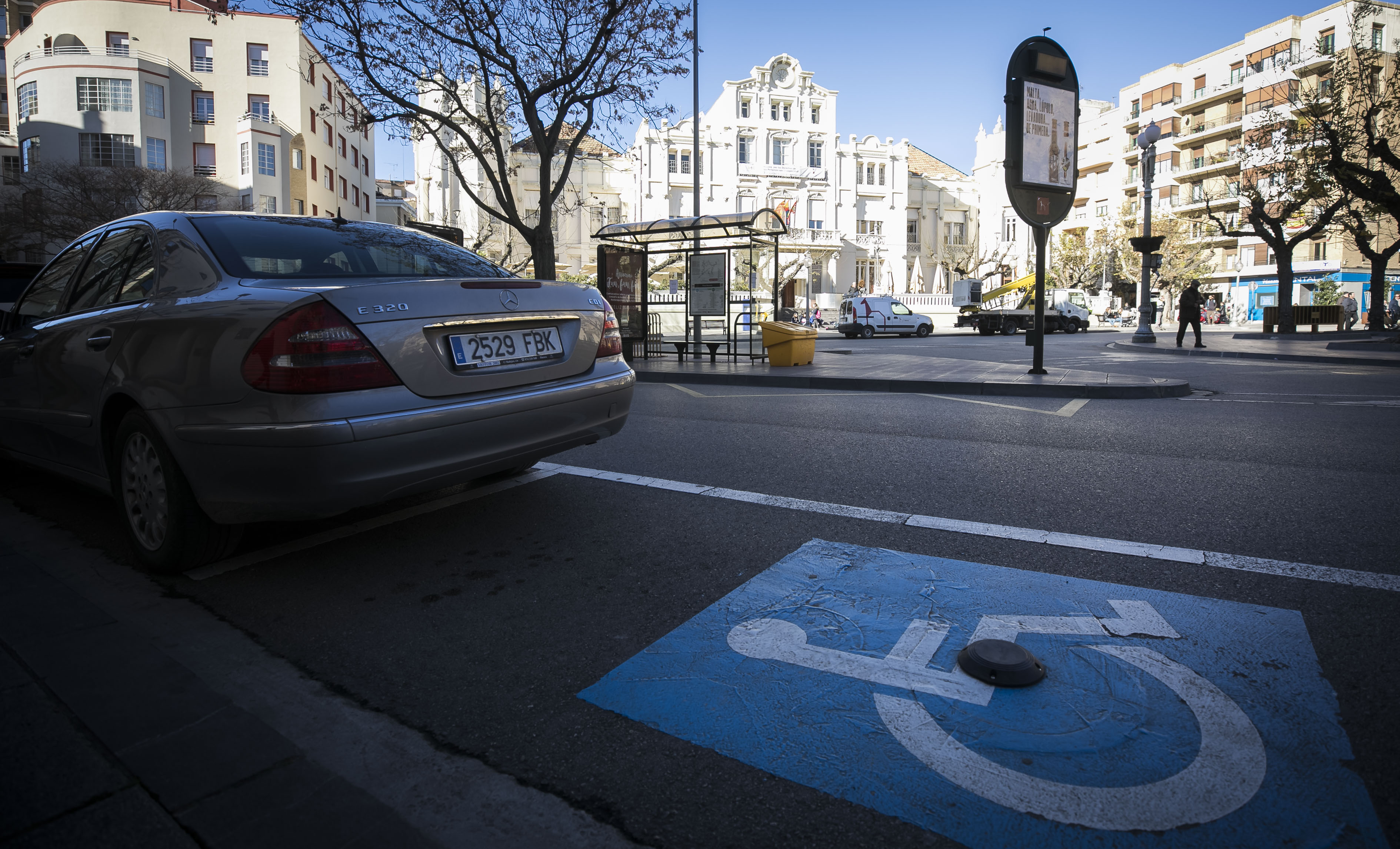
Mobility management and the environmental impact caused by traffic are two of the major concerns for many municipalities today. This is the situation of Huesca, a capital city in North-Eastern Spain. To combat congestion in the city and improve its accessibility for disabled citizens, the municipal government has installed Libelium’s smart parking sensor solution in 190 disabled parking bays to help detect occupancy and ensure there are enough spaces for those that need them.
There are plenty of problems with the way disabled spaces work. It’s often time-consuming for disabled drivers to find accessible parking, whilst many drivers ignore reserved bays and take the spots when they don’t need them. To ensure that disabled bays are reserved for those that need them, the municipal council had relied on handing out disabled badges to drivers and manually checking parking spaces. This was not only time consuming, but also fundamentally flawed as non-disabled drivers would often just borrow a disabled friends’ badge.
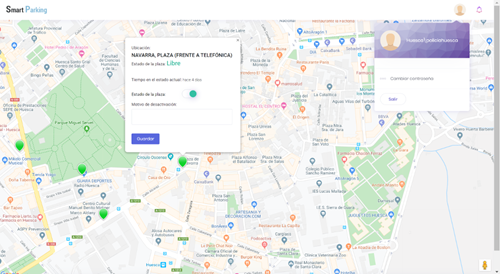
Libelium’s smart parking sensors combine radar and magnetic technology to detect space occupancy and send real-time updates to a central database. Disabled users can sign up to a municipality-run digital service using their smartphones to gain access to this database to see where the nearest disabled bay is located, saving them the time of having to drive around to locate an empty space.
The use of the digital app also means that sensors can detect when someone who has not registered as disabled through the digital service is occupying a disabled space. This means that parking enforcement officers can pinpoint those that are parked illegally, and that it is no longer possible to borrow someone’s disabled badge. You may be willing to share an official piece of paper, but people rarely share their smartphones with others.
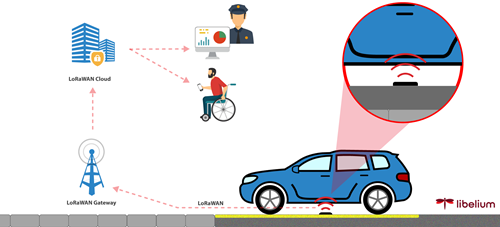
Parking sensors are nothing new, but Libelium’s technology is the first to integrate radar technology into its IoT hardware. Radar-enabled sensors allow for up to 99% detection accuracy, with wireless data on parking status sent directly to the cloud through the LoRaWAN network.
There are three ways to install the sensors themselves – either on the surface of, buried, or semi-buried beneath the parking bay. In all cases, the sensor requires almost zero maintenance thanks to radar technology not being affected by dirt, dust, oil spills, or adverse weather conditions. With a battery life of up to ten years, these sensors can simply be installed and left to do its job.
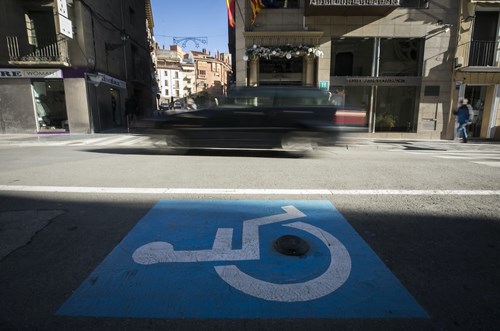
With the installation of Libelium’s smart parking technology, parking in Huesca is simpler and more efficient than ever. Parking enforcement has been streamlined thanks to accurate information on who is and is not allowed to park in disabled bays, whilst disabled drivers can quickly locate appropriate parking spaces through a simple app on their smart devices. With IoT hardware that can effectively be installed and left to work without interference, Huesca municipality’s upgrade to a smart parking system has enabled a more time effective, financially streamlined approach to providing much-needed parking access to disabled drivers.
About Libelium
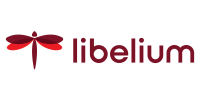 Libelium designs and manufactures wireless sensor network devices so that system integrators, engineering, and consultancy companies can deliver reliable Internet of Things (IoT), M2M, and Smart Cities solutions with minimum time to market.
Libelium designs and manufactures wireless sensor network devices so that system integrators, engineering, and consultancy companies can deliver reliable Internet of Things (IoT), M2M, and Smart Cities solutions with minimum time to market.
Over 2,000 developers from 115 countries in companies ranging from startups to universities to large international corporations have adopted Libelium’s hardware and software technology for projects in North America, Australia, Asia, and Europe.




Comments
There are no comments yet for this item
Join the discussion